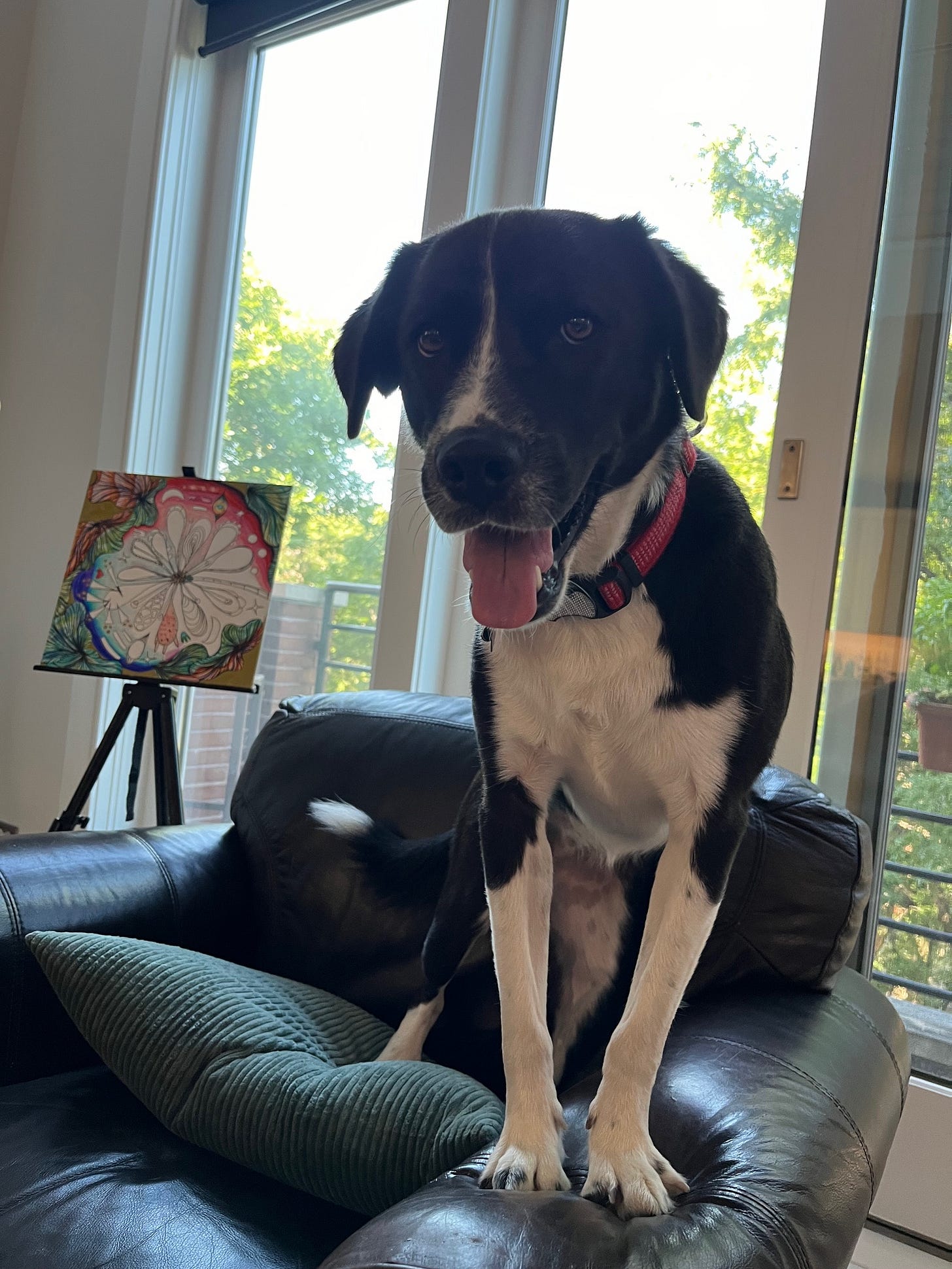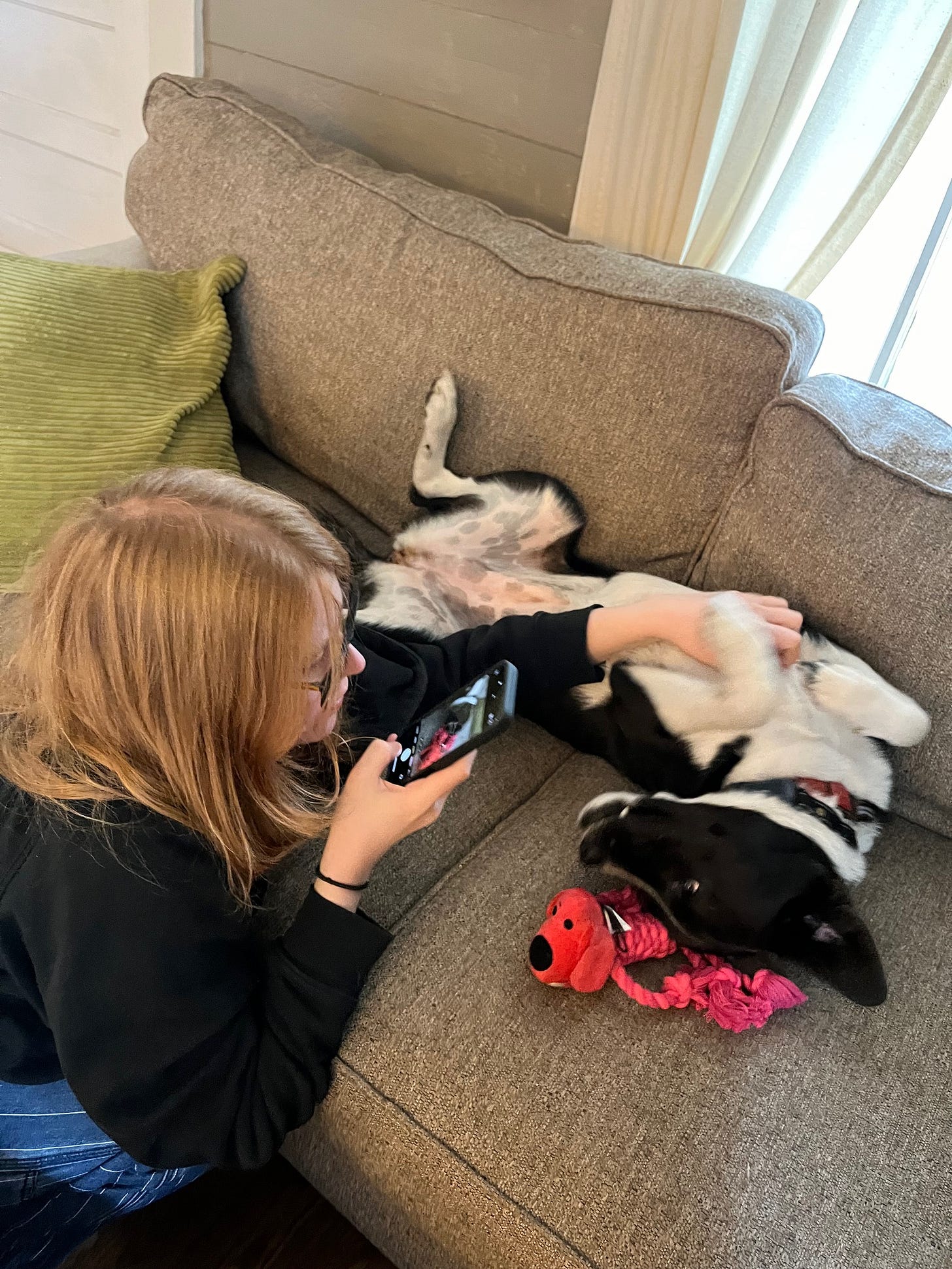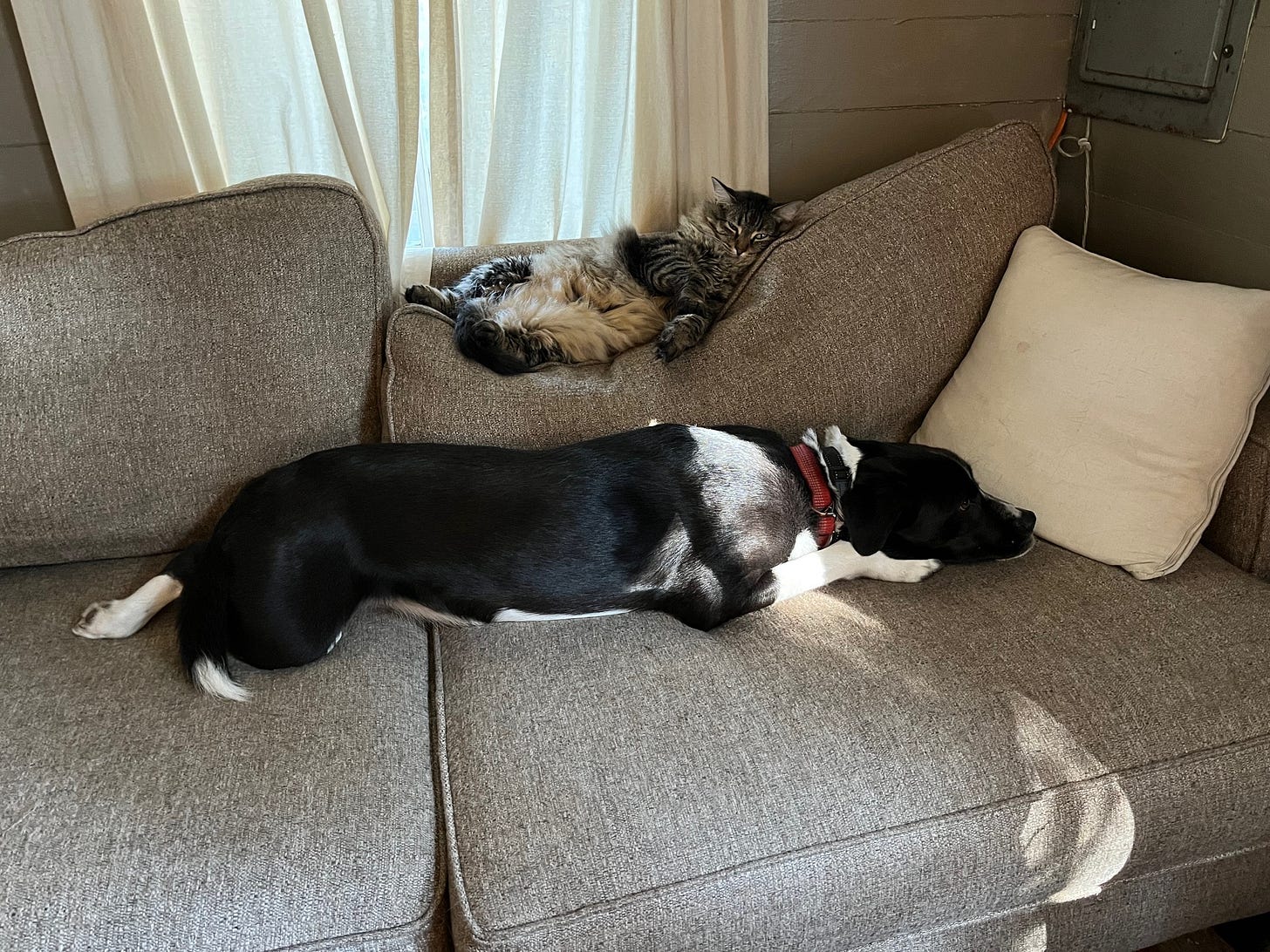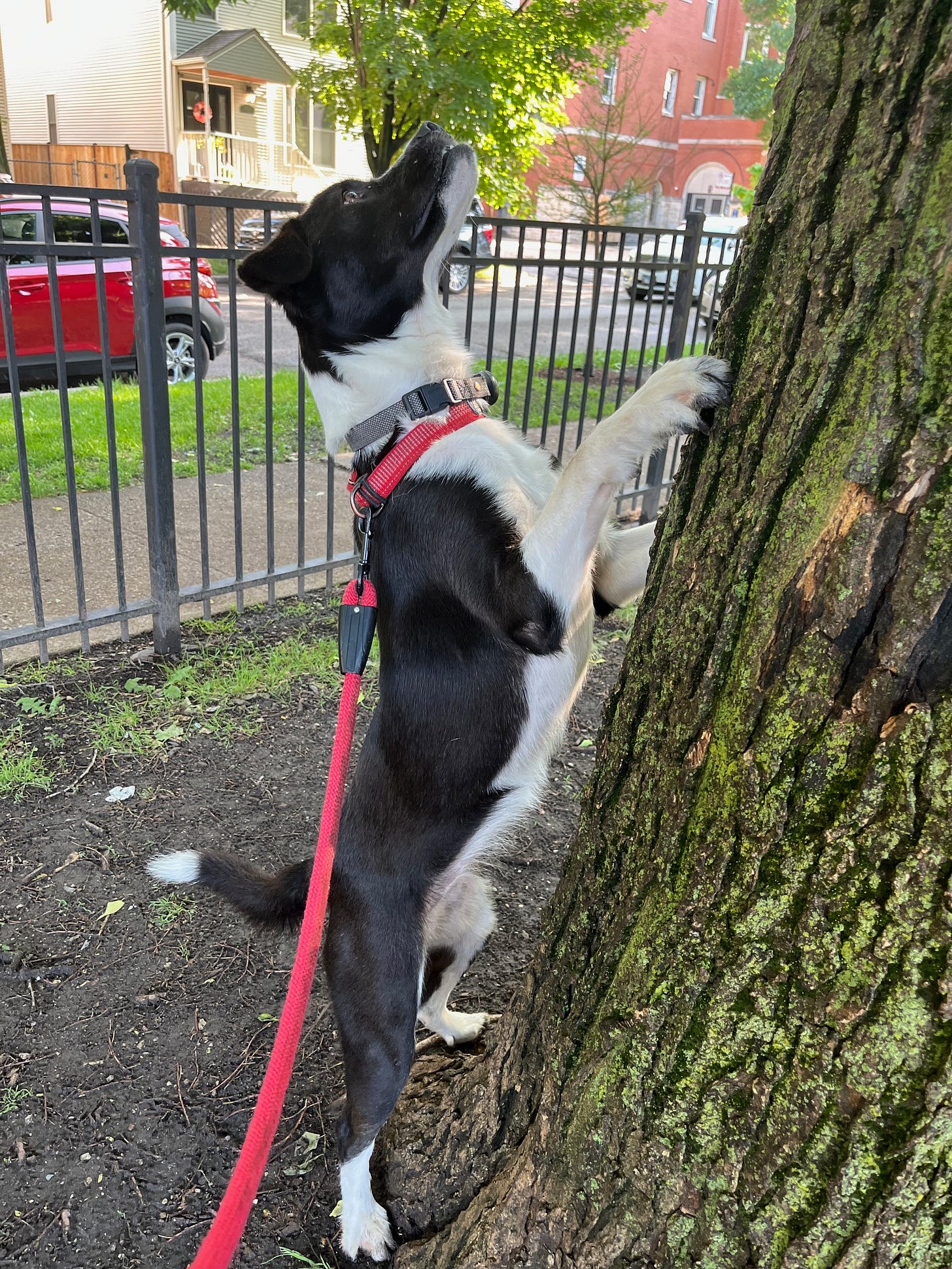Her name is Manon. It’s a French name. She’s a Louisiana dog, a rescue, and because we live in Acadiana, in south Louisiana, and my wife, Gaywynn, is Cajun, we wanted a name that is French. The name Manon will be familiar to those who know the movie, Manon of the Spring (Manon des Sources in French.) It’s not a well-known name in America, and so we inevitably have to say it more than once to people and explain why we chose it.
Manon is a pretty dog, a black and white female, about three years old, of indeterminate ancestry. We think there must be some Border Collie in her. That’s what people who see her for the first time often say. But we don’t really know. Clearly, she’s got more than one breed in her past.
She weighs about forty pounds. She has ears that are luxuriously soft to the touch, flopping like beauty in your hands. The tip of her tail is white. She has wide, darkish spots on her belly. Her most distinguishing feature, though, is her underbite. You can’t see it when her mouth is closed, but when it’s open, you can. It’s both comical and a bit scary.
We adopted her when she was about six months old. We don’t know what happened to her the first months of her life, but we suspect something that wasn’t good.
She’s very shy around people—including me, sometimes. She doesn’t like it when someone raises their voice and will slink away when they do. If you try to pet her head, she lowers that head and sometimes moves out of the way. She’s much more comfortable around females and often takes to new women we meet, and girls, immediately. This makes me feel guilty for all past male behavior. To make a dog fear you seems to me to be a grave sin, but people do.
She doesn’t bark much at all. Hardly ever. In fact, when we first got her, she didn’t bark at all for weeks, and we thought she didn’t know how. She does, though. She will bark, but never superfluously. Usually when she hears the UPS truck approaching.
When we first brought her home, she chewed everything in sight. Probably from anxiety in being in a new place with new people. Eventually, she became accustomed to us and our home, and she stopped. Not before many items were destroyed. She hasn’t relapsed, thankfully. Her favorite activity—what she lives and breathes for—is squirrels. To be specific, the chasing, catching and demise of said squirrels.
She’s a sweet soul. She loves to play with other dogs, but she’s deferential around them. She’s never exhibited one aggressive tendency in her life. I’ve never even heard her growl. If there was a war, she’d be a pacifist. She’s fleet afoot. We have three acres here in south Louisiana, including a long stretching front lawn, and she loves to dash around it like a comet. She’ll chase and retrieve a ball and likes me chasing her. I will, until I run out of gas, which is soon.
She’s Gaywynn’s dog, really. When Gaywynn comes home in the evening, Manon is beside herself. We’ve all seen crazy-happy dogs greeting their owners, leaping, running in circles, just flipped out seeing their beloved human. I’m a bit jealous, I admit. Not pathologically, I hope.
We’ve grown to love her very much. Like many fervent dog owners, we talk about her when we’re not home with her, especially when we go on trips and have to board her (it’s a nice, caring place) for a few days. We might as well be talking about our child we just dropped off at college and how lonesome we are without her. It usually starts the minute we leave her.
Manon is a bit mysterious. There’s part of her that she keeps to herself. She doesn’t always act like a typical dog. For instance, when we put food in her bowl, she’ll often ignore it—for the entire day. Then, for whatever reason, after leaving the food untouched all day, she’ll walk up to her bowl and eat. No rhyme or reason—to us, anyway.
A dog adds something inexplicable to a home. Yes, affection, humor, sweetness and playfulness. Also, the delight of being around a creature who acts on pure instinct. What freedom not to have to think about everything. Manon was homeless when we found her, and now she has a home. That sense of providing a home for her partly fills a hunger in me for a home. When you give a dog a home, you give yourself a home as well.
Having a pet usually means, because of how they age, that you’ll witness their decline and, eventually, end. You know you’ll be a caretaker, and you will do your best to ease them on their way. I don’t like to think about that much. But a dog—our dog—will remind you of the temporality of life, the transitory nature of things, of how it’s all borrowed, every minute, and that eventually, the ticket will be recalled and there is no more time. Every dog you love carries with them a foreseen sadness.
In the meantime, she’s here, with us, alive and well, youthful, the singular dog she is. We love her. Manon of the Spring.










Beautiful Manon, beautiful words. I can't read enough about our magical inter-species relationship with dogs and loved this so much, Richard. Last year I discovered and was touched by Danny Trejo words, “We brought dogs into our fire, and they are our responsibility.” So true. The love they bring is pure bliss.
Good girl, Manon.